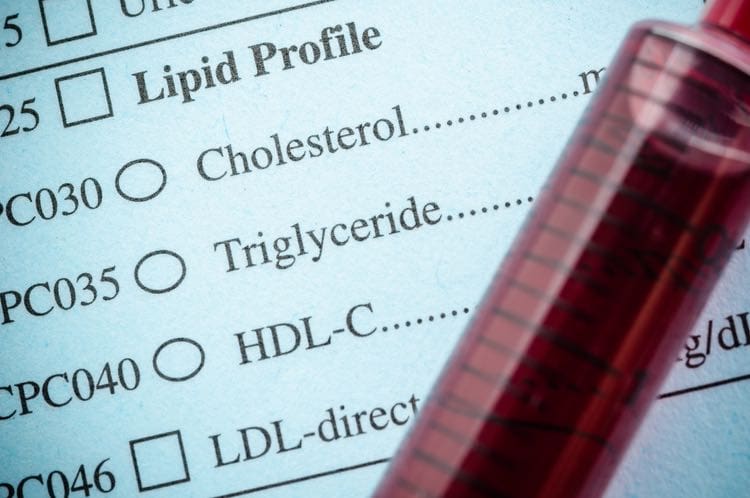A cholesterol test is a blood test that measures levels of fatty substances called lipids in the blood. Cholesterol is one type of lipid.
Why is a cholesterol test done?
Raised cholesterol levels can cause cholesterol to be deposited within the walls of arteries, making it difficult for blood to flow through. This build-up in the walls of the arteries, which is called atherosclerosis, puts a person at significant risk of heart disease and stroke.
High cholesterol levels may not give you any symptoms, so a blood test is the best way to check how much cholesterol and other lipids your blood contains.
What does a cholesterol test measure?
A cholesterol test measures the amount of cholesterol and other lipids carried by protein-based particles called lipoproteins, in the blood.
These are some of the main lipids measured in a cholesterol test.
- Low-density lipoprotein (LDL) cholesterol. This is the so-called ‘bad’ cholesterol that tends to be deposited in the arteries, causing atherosclerosis. High levels of LDL cholesterol are associated with cardiovascular disease (heart disease and stroke).
- High-density lipoprotein (HDL) cholesterol. As HDL helps carry cholesterol back to the liver, HDL cholesterol is sometimes known as ‘good’ cholesterol. Acting like a clean-up crew, HDL helps keep your arteries free of fatty deposits. It is advantageous to have high levels of HDL-cholesterol.
- Triglycerides. These are another type of lipid circulating in the blood, mainly in a different lipoprotein — very low density lipoprotein (VLDL). Your body converts excess kilojoules in the diet to triglycerides to be stored in fat cells. A raised level of triglycerides can be caused by consuming too many kilojoules, by drinking too much alcohol, or by having diabetes. A high triglyceride level can add to your risk of cardiovascular disease, especially if your HDL cholesterol is low.
- Total cholesterol. This gives an overall level of cholesterol in the blood.
Who should have a cholesterol test?
In Australia, regular cholesterol tests are recommended for:
- Adults aged 45 years and older.
- Aboriginal and Torres Strait Islander people aged over 35 (because they are at higher risk).
People younger than 45, who are in high-risk groups for cardiovascular disease, may also need to be tested regularly, such as those with:
- diabetes;
- a history of cardiovascular disease (e.g. coronary heart disease, peripheral arterial disease, stroke);
- a family history of premature cardiovascular disease; or
- chronic (long-term) kidney disease.
How is a cholesterol test done?
A cholesterol test is a simple blood test. Usually, you will be asked to fast (not consume any food and drink only water) for about 10-12 hours before the test but not more than 16 hours. The test is therefore often done in the morning after an overnight fast. It is usually recommended to drink some water during this time, to avoid dehydration, and you will usually be allowed to take your regular medicines. The pathology service that does your blood test or your doctor will be able to advise you of the exact requirements. If you have diabetes, you should seek your doctor’s advice before fasting.
Blood will be sent to the lab for testing, and the results will be sent to your doctor.
Test results
Your doctor will interpret the results of your cholesterol test in the light of your individual risk factors for cardiovascular (heart and stroke) disease. What are acceptable cholesterol levels for you may be different to what are acceptable for someone else.
If your lipid levels are abnormal, your doctor may want to repeat the test, especially if you were unwell or extremely stressed when it was done as these factors can give an abnormal result.
If your doctor suspects that another disorder, such as diabetes, kidney disease or low thyroid levels, has caused the abnormal lipid results, he or she will probably advise further tests to investigate this.
If your doctor is concerned about your cholesterol or triglyceride levels, he or she will probably advise you on dietary and lifestyle changes to follow to try to improve your lipid levels, before re-testing you in around 6 weeks.





